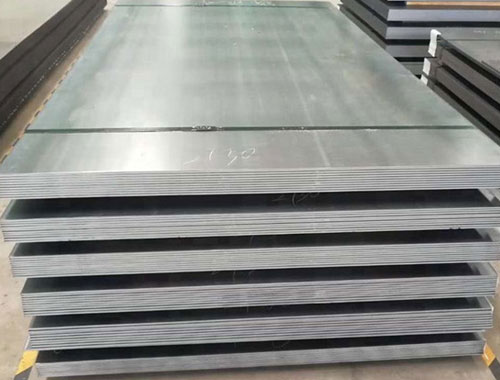𝐂𝐡𝐞𝐧𝐧𝐚𝐢

𝐌𝐒 𝐏𝐥𝐚𝐭𝐞 – 𝐏𝐫𝐞𝐜𝐢𝐬𝐢𝐨𝐧 𝐒𝐭𝐫𝐞𝐧𝐠𝐭𝐡 𝐟𝐨𝐫 𝐈𝐧𝐝𝐮𝐬𝐭𝐫𝐢𝐚𝐥 𝐄𝐱𝐜𝐞𝐥𝐥𝐞𝐧𝐜𝐞
At Bhagwandas & Co., we supply high-quality MS Plates (Mild Steel Plates) that meet the diverse needs of construction, fabrication, and engineering industries. With over 50 years of expertise, we are one of South India’s most trusted suppliers of structural steel, serving clients across Tamil Nadu, Pondicherry, Telangana, and Andhra Pradesh.
🔧 What Is an MS Plate?
An MS Plate is a flat sheet of mild steel known for its:
. Excellent weldability and machinability
. High tensile strength
. Cost-effectiveness and durability
MS Plates are widely used in:
. Structural frameworks
. Industrial machinery
. Shipbuilding and automotive components
. Storage tanks, platforms, and heavy equipment
We offer MS Plates in various thicknesses, sizes, and grades to suit 𝐜𝐮𝐬𝐭𝐨𝐦𝐢𝐳𝐞𝐝 𝐩𝐫𝐨𝐣𝐞𝐜𝐭 𝐫𝐞𝐪𝐮𝐢𝐫𝐞𝐦𝐞𝐧𝐭𝐬.
✅ 𝐖𝐡𝐲 𝐂𝐡𝐨𝐨𝐬𝐞 𝐁𝐡𝐚𝐠𝐰𝐚𝐧𝐝𝐚𝐬 & 𝐂𝐨.,?
With decades of industry experience, we deliver:
. 📦 IS-standard certified MS Plates with precise dimensions
. 🚚 Fast and reliable delivery across multiple states
. 🧠 Expert consultation for selecting the right plate for your application
. 🏢 Bulk inventory to meet urgent and large-scale demands
Our MS Plates are sourced and stocked to ensure consistency, strength, and long-term performance, backed by our customer-first approach and technical excellence.
📈 𝐀𝐩𝐩𝐥𝐢𝐜𝐚𝐭𝐢𝐨𝐧𝐬 𝐨𝐟 𝐌𝐒 𝐏𝐥𝐚𝐭𝐞𝐬
Our MS Plates are ideal for:
. Construction and infrastructure projects
. Fabrication of industrial components
. Heavy-duty platforms and base structures
. Agricultural and transport equipment
Whether you’re building a foundation or fabricating machinery, our MS Plates offer 𝐫𝐞𝐥𝐢𝐚𝐛𝐥𝐞 𝐬𝐭𝐫𝐞𝐧𝐠𝐭𝐡 𝐚𝐧𝐝 𝐟𝐥𝐞𝐱𝐢𝐛𝐢𝐥𝐢𝐭𝐲 for every application.
𝐋𝐨𝐨𝐤𝐢𝐧𝐠 𝐟𝐨𝐫 𝐝𝐞𝐩𝐞𝐧𝐝𝐚𝐛𝐥𝐞 𝐌𝐒 𝐏𝐥𝐚𝐭𝐞 𝐬𝐮𝐩𝐩𝐥𝐢𝐞𝐫𝐬 𝐢𝐧 𝐂𝐡𝐞𝐧𝐧𝐚𝐢? Bhagwandas & Co., is your one-stop solution for all structural steel needs. Contact us today for pricing, availability, and expert support.

Specifications
| MS PLATES | |
| Thickness | Weight |
| mm | Kg/sq.m |
| 5 | 39.25 |
| 6 | 47.1 |
| 8 | 62.8 |
| 10 | 78.5 |
| 12 | 94.2 |
| 14 | 109.9 |
| 16 | 125.6 |
| 18 | 141.3 |
| 20 | 157 |
| 22 | 172.7 |
| 25 | 196.25 |
| 28 | 219.8 |
| 32 | 251.2 |
| 36 | 282.6 |
| 40 | 314 |
| 45 | 353.2 |
| 50 | 392.5 |
| 56 | 439.6 |
| 63 | 494.5 |
| 71 | 557.4 |
| 80 | 628 |
